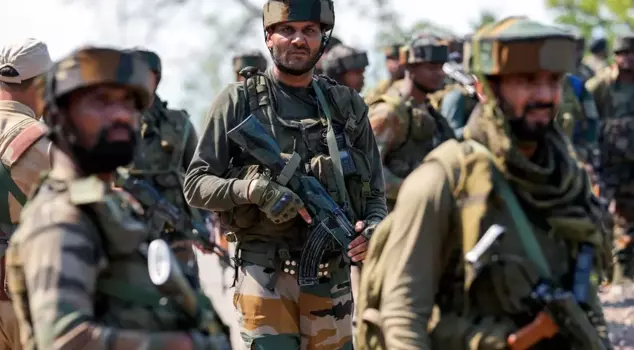
27.04.2025 01:20
Tensions have escalated with Pakistan following a recent terrorist attack in the Jammu and Kashmir region administered by India. It has been reported that the most intense clashes between the soldiers of the two countries in the last four years have occurred along the border line in Kashmir.
```html
Recently, tensions have escalated in the Pahalgam region of Jammu and Kashmir, which is under India's control, following a terrorist attack. Clashes between the Indian and Pakistani armies have intensified.
"THE MOST VIOLENT CLASHES IN KASHMIR IN THE LAST 4 YEARS"
It has been reported that fierce clashes with heavy weapons are taking place along the 740-kilometer border line in Kashmir. Indian media stated that the clashes between the two countries are the most violent in the last 4 years.
PAKISTAN ARMY ATTACKING INDIAN POSTS
It has been reported that the Pakistan army is conducting attacks on Indian posts in the region. Pakistani soldiers are said to be heavily targeting Indian positions in the Samahni Valley of Kashmir.
PAHALGAM TERROR ATTACK
On April 22, armed individuals opened fire on tourists in the Pahalgam region of Jammu and Kashmir, resulting in the deaths of 26 people and many injuries. Following the terrorist attack, Indian Prime Minister Narendra Modi cut short his official visit to Saudi Arabia and returned to New Delhi. Upon his arrival in the capital, he held a security meeting with high-level officials to assess the situation.
National media reports indicated that the attack was claimed by the Resistance Front (TRF), an extension of the banned Lashkar-e-Taiba (LET) organization in Pakistan. India suspended the "Indus Waters Treaty," requested Pakistani diplomats in New Delhi to leave the country within a week, and canceled all visas issued to Pakistani citizens.
INDUS WATERS TREATY
The Indus Waters Treaty between Pakistan and India was signed in 1960 under the guarantee of the World Bank. According to the treaty, control of the Beas, Ravi, and Sutlej rivers, which feed the Indus River, was given to India, while control of the Indus, Jhelum, and Chenab rivers was given to Pakistan. Since the rivers given to India feed the Indus more, rights were granted to Pakistan over these rivers. A clause was also added to the treaty regarding India's rights to energy production, agriculture, and fishing.
Pakistan had last complained to the World Bank in 2019 due to dam projects by India that obstructed the water flow it was supposed to share from these three rivers. Nevertheless, India inaugurated the Kishanganga Dam, which it began constructing in 2007, in a ceremony attended by Prime Minister Narendra Modi in 2018. The Ratle Dam is also planned to be opened in 2026. India argues that the dam projects are in compliance with the treaty. Due to the dams built by India, there are risks of water scarcity or flooding in Pakistan. It is reported that 20% of Pakistan's economy is dependent on activities around the Indus River.
KASHMIR, A DISPUTED REGION
Kashmir has been divided since Pakistan and India gained independence in 1947. Both countries claim rights over the entire region of Kashmir. India refers to the part it controls as "Jammu and Kashmir," while Pakistan calls its controlled territory "Azad Kashmir."
Tensions between predominantly Hindu India and predominantly Muslim Pakistan over Kashmir have increased following the Indian government's unilateral decision to revoke Kashmir's semi-autonomous status in 2019, directly linking it to New Delhi.
```